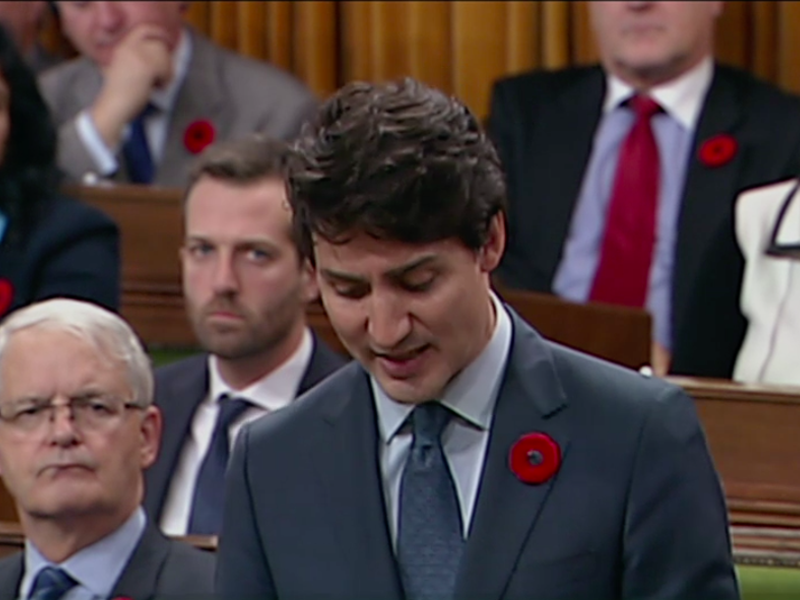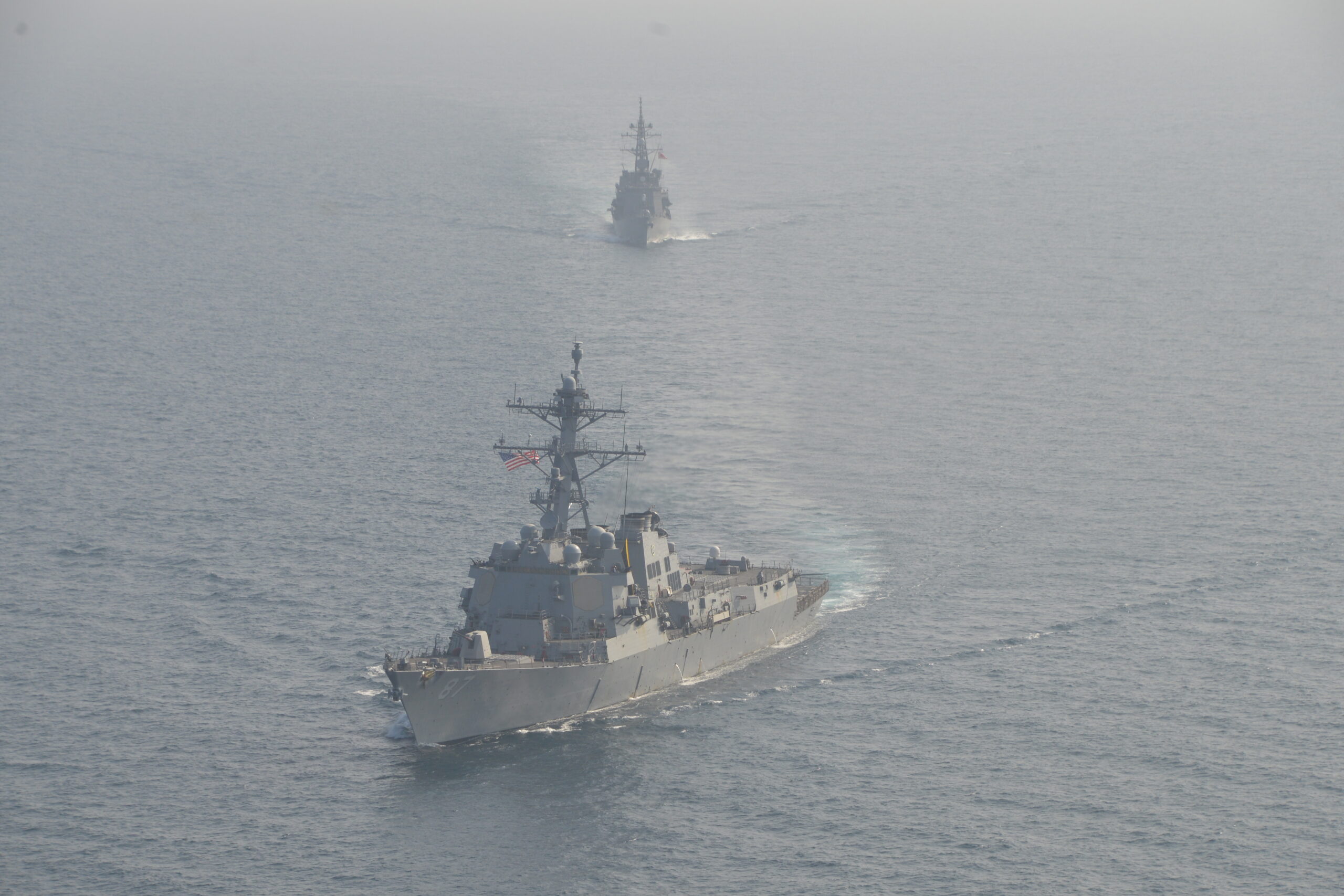OldSolduer
Army.ca Relic
- Reaction score
- 15,531
- Points
- 1,260
Not soon enough. I have a rather different approach to leaders of terrorist groups than the UN or the GoC .Wonder when senior fatcats living elsewhere might start falling out windows etc!

Not soon enough. I have a rather different approach to leaders of terrorist groups than the UN or the GoC .Wonder when senior fatcats living elsewhere might start falling out windows etc!
When it comes to issues that matter to Jewish voters, it’s hard to deny that Prime Minister Justin Trudeau has been active. He apologized for Canada’s refusal to admit the MS St. Louis, which carried Jews desperate to escape Hitler’s Europe. He’s maintained Canada’s Israel-friendly stance at the UN. His government worked with the Jewish state to modernize the Canada-Israel Free Trade Agreement. It also adopted the International Holocaust Remembrance Alliance’s definition of anti-Semitism.
In 2016, Trudeau and the Liberals supported a parliamentary motion introduced by the Conservatives condemning the BDS campaign against Israel. The Liberals have also quadrupled funding to the Security and Infrastructure Program, which the Tories started to help at-risk communities protect themselves against hate crimes.
But while Harper’s Conservatives eliminated aid to UNRWA in 2010 over the agency’s ties to Hamas, the Liberals restored funding in 2016, to the tune of $110 million to date. That has stuck in many Jewish craws, especially given that other Western countries have stopped funding the agency. Scheer has also pledged to end it if his party forms the government.
Trudeau has embraced a pro-Israel stance, but has eschewed the more passionate rhetoric and tone used by the Conservatives, political scientist Steven Seligman argued in a paper published last year in The American Review of Canadian Studies.
In terms of substantive policy, the Trudeau government has made “only one change – the restoration of Canadian aid to UNRWA,” Seligman wrote.
Joe Oliver, a former Conservative cabinet minister under Harper, agrees that defunding UNRWA is important.
The agency, he said, is “outright hostile to Israel,” and tied to organizations that are banned in Canada. The schools, textbooks and media it funds openly call for the elimination of Israel. “It’s a shambles and a disgrace,” Oliver said. “Why are we continuing to fund that?”
For many Jewish voters, Scheer’s boldest promise was made in May, one day before Israel celebrated its Independence Day: to move Canada’s embassy in Israel from Tel Aviv to Jerusalem, a notion not even Harper floated. It came nine months after the Conservatives voted to recognize Jerusalem as Israel’s capital and about a year after the United States moved its embassy to Jerusalem, which also coincided with Israel’s Independence Day.
The Liberals say Canada’s position on Jerusalem will not change. In a wide-ranging CJN interview last November, the prime minister said the only circumstance that would lead to him moving the embassy is a two-state solution worked out between Israel and the Palestinians “that is agreed to and stabilized. This is not a decision that can be made unilaterally by third parties, or even by one of the two parties. We need a two-state solution that is worked on by both parties to secure peaceful, democratic states on both sides.”
Overall, observed Weinfeld, it seems that some Canadian Jews “are doubtful of Trudeau the way some American Jews were doubtful of (former president Barack) Obama.” It’s possible, Weinfeld added, that Israel “may become more of a wedge issue in Canada among Liberal party members, the way it has in the U.S. among Jewish Democrats.”
Israel did become a wedge issue – and a heated one – during last year’s riots at the Gaza border, but it wasn’t among Liberals. Trudeau called for an independent investigation into Israel’s shooting of a Canadian doctor during the violence, and he was roundly condemned in some circles for failing to mention Hamas’ role in the fighting.
The episode led to an old-fashioned donnybrook in the House of Commons between him and Scheer.
The Conservative leader bluntly accused Trudeau of blaming the border rioting solely on Israel – “a country that goes out of its way to minimize civilian casualties” – without placing any blame on Hamas.
Trudeau replied that the Liberals have “repeatedly condemned the violence, including the incitement to violence by Hamas, but I will express once again that I am proud that Canada is one of those countries in which support for Israel and friendship with Israel go beyond partisan lines.”

massive disruptions in shipping, add in the low water in the Panama canal and there is going to be some hurt from this.
Does somebody decide to spank the Houthis?

 gcaptain.com
gcaptain.com
Left alone, this will mess with Egypt’s economy as shipping starts to avoid their otherwise convenient canal. That won’t go without a response.
massive disruptions in shipping, add in the low water in the Panama canal and there is going to be some hurt from this.
Does somebody decide to spank the Houthis?
Not soon enough. I have a rather different approach to leaders of terrorist groups than the UN or the GoC .


This makes the US, France, and the UK that have engaged Houthi drones.
I guarantee the Canadian government is disappointed we don't have a Frigate in that AOR right now.

U.S. and Britain say their navies shot down 15 attack drones over the Red Sea
A U.S. warship shot down 14 suspected attack drones over the Red Sea on Saturday, and a Royal Navy destroyer downed another drone that was targeting commercial ships, the British and American militaries saidwww.ctvnews.ca
This makes the US, France, and the UK that have engaged Houthi drones.
I guarantee the Canadian government is disappointed we don't have a Frigate in that AOR right now.

U.S. and Britain say their navies shot down 15 attack drones over the Red Sea
A U.S. warship shot down 14 suspected attack drones over the Red Sea on Saturday, and a Royal Navy destroyer downed another drone that was targeting commercial ships, the British and American militaries saidwww.ctvnews.ca
Are you sure about that? Do they want to be seen interfering with "Liberation Loitering Munitions" (LLM tm) on their way to support the oppressed Palestinians in their brave defiance of their oppressive Zionist overlords?This makes the US, France, and the UK that have engaged Houthi drones.
I guarantee the Canadian government is disappointed we don't have a Frigate in that AOR right now.
You mean replenish them in theatre? No, but yes. No one the ability to do that at sea, but the frigate could go alongside one of any number of friendly ports and replenish there. We'd just need to transport them over.Would RCN have the ability to replenish any warshots it fired at this point?
Yes. Maybe a few of the more woke members of the LPC would be against it, but everyone else would. The whole reason CSC is getting Tomahawks is because Canada felt really left out when the US, UK and France were all lobbing missiles at ISIS and Canada couldn't contribute.Are you sure about that? Do they want to be seen interfering with "Liberation Loitering Munitions" (LLM tm) on their way to support the oppressed Palestinians in their brave defiance of their oppressive Zionist overlords?
You might be disappointed as well as the rest of the RCN but I guarantee you this Liberal GoC is not unhappy and some members in private are probably happy about not having a warship in the area.This makes the US, France, and the UK that have engaged Houthi drones.
I guarantee the Canadian government is disappointed we don't have a Frigate in that AOR right now.

U.S. and Britain say their navies shot down 15 attack drones over the Red Sea
A U.S. warship shot down 14 suspected attack drones over the Red Sea on Saturday, and a Royal Navy destroyer downed another drone that was targeting commercial ships, the British and American militaries saidwww.ctvnews.ca
In the early morning hours of December 16 (Sanna time) the US Arliegh Burke-class guided missile destroyer USS CARNEY (DDG 64), operating in the Red Sea, successfully engaged 14 unmanned aerial systems launched as a drone wave from Houthi-controlled areas of Yemen. The UAS were assessed to be one-way attack drones and were shot down with no damage to ships in the area or reported injuries. Regional Red Sea partners were alerted to the threat.
The decision of what to deploy and where is ultimately a political decision.You might be disappointed as well as the rest of the RCN but I guarantee you this Liberal GoC is not unhappy and some members in private are probably happy about not having a warship in the area.
Agreed - but I have seen a lot of kicking the can down the road behavior on defence matters by successive governments. of both political stripes.The decision of what to deploy and where is ultimately a political decision.
Looks like it's time to remind Yemen why the US has no universal health care.
Not to mention cost. An SM-2 starts at ~0.5mil. How expensive are the drones that they are shooting down?I wonder how long before the Red Sea theatre becomes an operational test bed for laser weapons? The volume of munitions that can be put in the air in this day and age is definitely making a case for some air defense weapons that aren’t physical munitions based.
